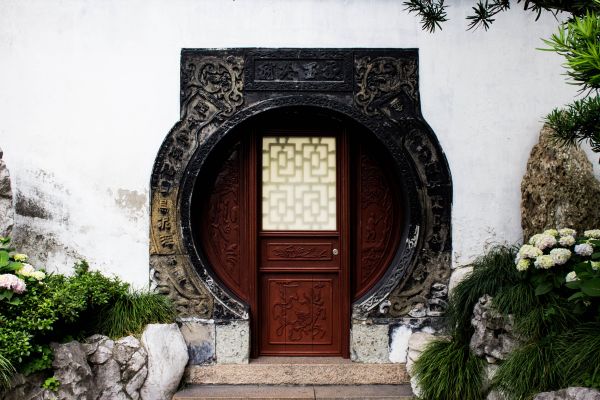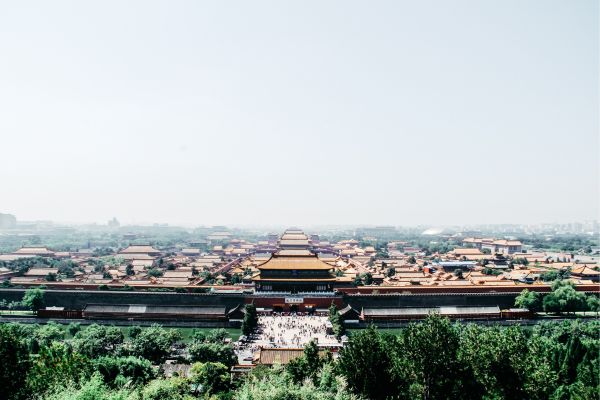
The post is an introduction to the article titled "Institutional Innovation in the International Commercial Court" (国际商事法庭的机制创新), which was published in "People's Court Daily" (人民法院报) (14 July 2018). The author of the article is Judge Zhang Yongjian (张勇健), Director of the 4th Civil Division of China's Supreme People's Court (SPC).
1. Judge Zhang Yongjian summarizes the characteristics of China International Commercial Court (CICC) that merit attention.
(1) Determination of scope of jurisdiction
Using the jurisdiction of Dubai International Financial Center Court, Singapore International Commercial Court and the International Commercial Courts in Kazakhstan, the Netherlands and Belgium for reference, the SPC determines the jurisdiction of the CICC on the basis of the PRC Civil Procedure Law (CPL), namely:
i. International commercial cases of first instance where the parties have chosen to be under the jurisdiction of the SPC in accordance with Article 34 of the CPL and the amount in controversy is more than RMB 300 million yuan;
ii. International commercial cases of first instance where high people's courts having jurisdiction deem it necessary to be heard by the SPC and obtain the SPC’s approval;
iii. International commercial cases of first instance that have major impacts on the whole country;
iv. Cases involving applications for arbitration preservation, cancellation or enforcement of international commercial arbitration awards in accordance with Article 14 of the “Provisions of the Supreme People’s Court on Several Issues Concerning the Establishment of the International Commercial Court” (《最高人民法院关于设立国际商事法庭若干问题的规定》); and
v. Other international commercial cases that the SPC deems should be heard by the International Commercial Court.
The International Commercial Court only accepts disputes arising between equal commercial subjects in the fields of trade and investment, and does not accept investment and trade disputes between states. International investment disputes between investors and host countries are also not accepted.
(2) Establishment of the expert committee
The SPC will invite Chinese and foreign legal experts who are proficient in international law and national law, have rich practical experience and high international reputation to form the International Commercial Expert Committee.
The parties may choose members of the Expert Committee to mediate in the process of accepting cases in the International Commercial Court.
Members of the Expert Committee may also be commissioned by the International Commercial Court to provide advisory opinions on specific legal matters, such as the ascertainment of foreign laws involved in the cases heard by the people's courts.
(3) Establishment of a “one-stop” dispute settlement platform
The SPC will select appropriate international commercial mediation institutions, international commercial arbitration institutions to jointly establish a multi-resolution mechanism for international commercial disputes with the CICC.
In this mechanism, the CICC will provide these international commercial arbitration institutions with procedural support such as property preservation and evidence preservation. When Chinese courts enforce arbitral awards of these international commercial arbitration institutions, the CICC will conduct a convenient and speedy judicial review on them.
The CICC will review the international commercial mediation agreements brokered by International Commercial Expert Committee members and international commercial mediation institutions. The CICC can also make corresponding conciliation statements or judgments accordingly so that these mediation agreements can be enforced by the courts.
The SPC hopes to combine litigation, mediation and arbitration in this way, thus making the CICC become a convenient, fast and low-cost "one-stop" dispute settlement center.
(4) Establishment of new rules of foreign-related evidence
Firstly, the SPC formally specifies for the first time that the CICC does not require that extraterritorial evidence must be notarized or certified, and the parties themselves may decide whether to notarize and/or certify the evidence or not
Secondly, with the consent of both parties, the relevant parties are allowed not to provide their Chinese translations of the English evidence materials, so as to reduce litigation costs and simplify the proceedings.
Thirdly, the CICC can investigate and collect evidence and also cross-examine it through the Internet, so that the parties can participate in the proceedings in a quick and convenient way.
(5) Establishment of a new mechanism for the ascertainment of foreign laws
Previously, Chinese courts may ascertain foreign laws through five means: provided by the litigant, provided by Chinese or foreign experts, provided by the central organization of the country having entered into the judicial assistance treaty with China, provided by the Chinese embassy or consulates in that foreign country, and provided by foreign embassy or consulates in China.
The CICC has increased the methods to ascertain foreign laws, namely “provided by institutions for discerning laws” and “provided by members of the International Commercial Expert Committee”, and also has allowed for the use of other reasonable ways to identify foreign laws, such as Internet identification.
(6) Clarify that minority opinions of the collegial panel can be disclosed in judgments
When deliberating a case, the collegial panels of the CICC shall observe the majority rule. It is worth noting that minority opinions of the CICC collegial panels can be stated in the judgments, which is the first time that this kind of practice has occurred in China. However, the CICC does not require that minority opinions be made public, nor does it require judges to sign their names when minority opinions are made public.

2. Besides, Judge Zhang Yongjian introduces the establishment of the CICC.
(1) In January 2018, Xi Jinping (习近平) presided over the meeting of the Communist Party of China (CPC) Central Committee's "the leading group for comprehensive deepening of reform". At the meeting, the group adopted the "Opinions on the Establishment of ‘the Belt and Road Initiative’ International Commercial Dispute Settlement Mechanism and Institutions" (关于建立“一带一路”国际商事争端解决机制和机构的意见) (hereinafter referred to as the "Opinions").
According to the Opinions, China will study and learn from the beneficial practices in the current international dispute settlement mechanism. On this basis, China will establish a new international commercial dispute settlement mechanism and institutions which are in line with the national conditions of the participating countries in the Belt and Road Initiative (BRI) construction, and will be widely accepted, so as to make it fair, efficient and convenient to settle cross-border commercial disputes arising from the construction of BRI.
(2) On 29 June 2018, the SPC set up the First International Commercial Court in Shenzhen and the Second International Commercial Court in Xi' an respectively.
(3) On 1 July 2018, "Provisions of the Supreme People's Court on Several Issues concerning the Establishment of International Commercial Court (最高人民法院关于设立国际商事法庭若干问题的规定) came into effect.
If you would like to discuss with us about the post, or share your views and suggestions, please contact Ms. Meng Yu (meng.yu@chinajusticeobserver.com ).
If you wish to receive news and gain deep insights on Chinese judicial system, please feel free to subscribe to our newsletters (subscribe.chinajusticeobserver.com ).
Contributors: Guodong Du 杜国栋 , Meng Yu 余萌






